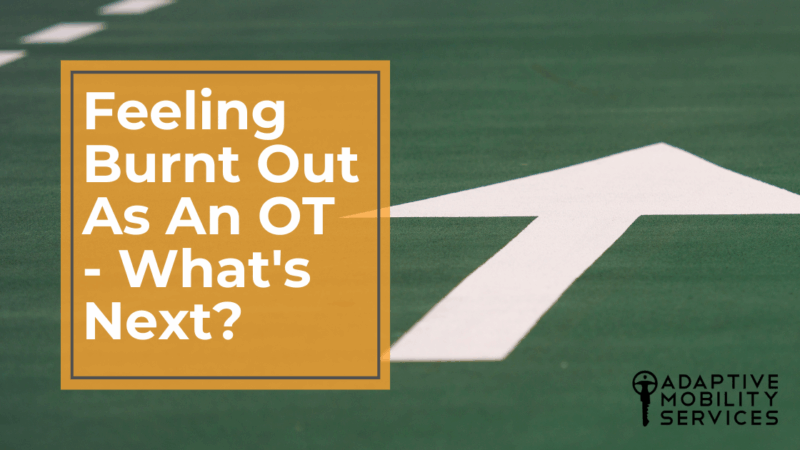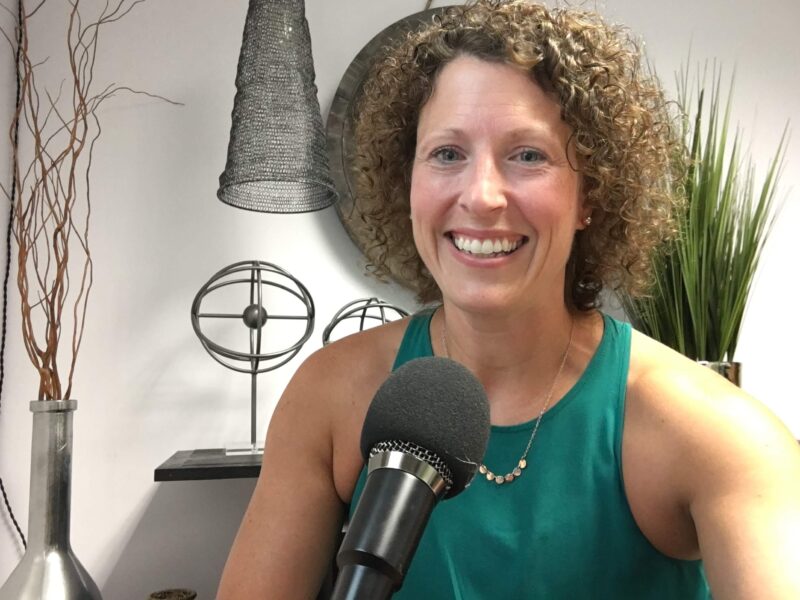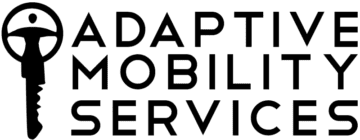
Feeling Burnt Out As An OT – What’s Next?
Many occupational therapists (OTs) experience burnout at some point in their careers. Between working long hours, with caseload after caseload, and the pressure of productivity, you feel like you aren’t fulfilling your calling as an OT. This career that once excited you is now leaving you physically exhausted, and there is never enough time to care for patients.
Caring for patients is what first drove many of us to become OTs. You may be wondering what’s keeping you in the field. If you’ve been looking for a new reason, a newer, better purpose in your role as an OT, you should consider specializing as a driver rehabilitation specialist.
Why You Should Consider Specializing As An OT Driver Rehabilitation Specialist
Driver rehabilitation lets you utilize your OT skills in a different setting that allows you to have more freedom, flexibility, and long-term stability. You still get to be in a clinical environment, but in a new light that will keep you rejuvenated and motivated long-term. Additionally, you will finally have the time to dedicate to patients in need of our expertise.
-
Less physical stress than traditional OT jobs
In traditional settings, OTs often do physically demanding tasks like moving patients, helping them move around, and giving hands-on care that can be physically draining over time. Driver rehabilitation, on the other hand, doesn’t require as much physical effort from you as the OT. Sure, there is some lifting with adaptive equipment and moving in and around a vehicle, but overall less lifting of people and hands on. A lot of the work involves assessment, teaching, and guided practice. This lowers the risk of injury as an OT and makes it easier to have a long and satisfying career.
-
More freedom and choice in private practice
Driver rehabilitation specialists in private practice have the freedom to make their own schedules, work at their own pace, and even choose the clients they work with. You will have more professional freedom than in many traditional OT jobs. Working for yourself means you get to set your hours, you always have first dibs at vacation days, and if you choose, you will never work a holiday or weekend ever again.
-
More meaningful interactions with fewer patients
Driver rehabilitation specialists usually only work with two to three clients a day, unlike traditional OT workplaces, where you see that many patients every 30 minutes, if not more. These longer, more personalized sessions give people more time to build deeper relationships and get real results, as well as give you the opportunity to do what’s best for each individual client. Helping a client get back behind the wheel and regain their independence is very rewarding, both personally and professionally.
-
No more problems with insurance billing
Driver rehabilitation is often paid for in cash, which means you don’t have to deal with the endless paperwork, denials, and limits that come with insurance billing. This makes your work easier and less stressful and lets you focus completely on taking care of your clients. You decide how much to charge, clients pay you directly, and you can spend more time doing what you love with less hassle.
Finding Happiness Again in Occupational Therapy
If you’ve been feeling stuck, burnt out, or overwhelmed in your OT job, know that there are alternative ways to move forward. Driver rehabilitation lets you stay true to your desire to help others, maintain some of your OT skills, and build a business that is good for your professional life.
You can move into a job that allows you to make a difference without hurting your health or happiness if you get the right training, mentorship, and tools. Consider partnering with Adaptive Mobility to learn more! Driver rehabilitation isn’t just a new job. It serves as a chance to remember why you chose this career in the first place.
Meet Susie!

Susie Touchinsky, OTR/L, SCDCM, CDRS, is an established expert in both occupational therapy and driver rehabilitation. She has been an OT for more than 20 years and brings expertise and a love for helping others in her speeches and trainings.
Learn More With Our OT Driver Rehabilitation Specialist Courses
Try Our Free OT DRS Courses:
- OTs Role With Driving
- GRID: Generalist Resource to Integrate Driving
- Readiness to Drive: IADL Checklist
- FREE 6 Driving Resources for the OT
- 5-Steps Our Clients Use to Start Their Own Highly-Paid OT Driver Rehab Business
- Driving Risk Screening Tools
- BCAT Brief Cognitive Assessment Test System Overview
- BCAT Part 2: CBS 8 & 15-for-Me
Become the best OT Driver Rehabilitation Specialist you can be by being a life long learner.
